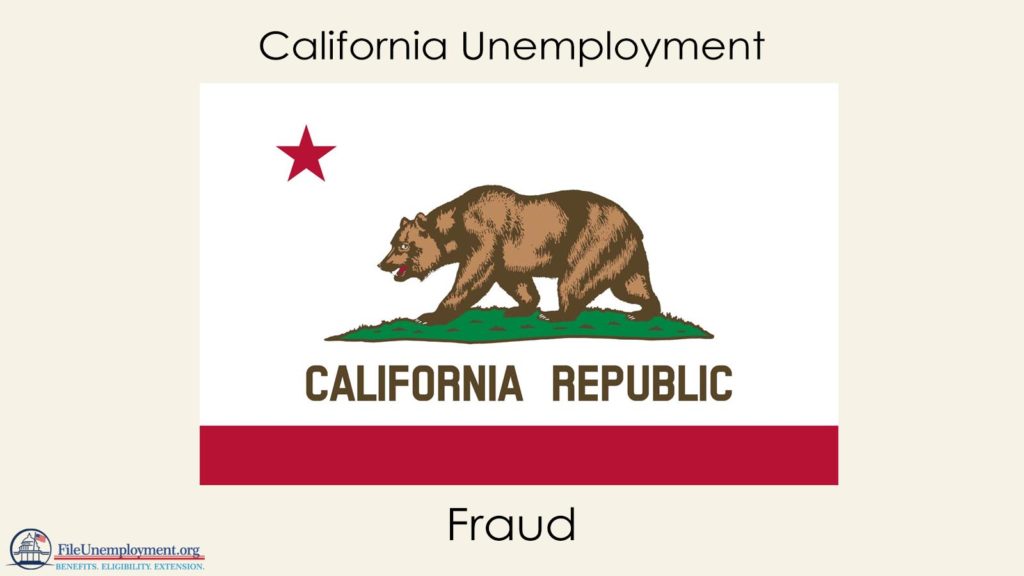
California unemployment insurance fraud refers to any intentional and deceitful activity that is carried out to wrongfully obtain unemployment benefits from the California Employment Development Department (EDD).
This can include submitting false unemployment claims, misrepresenting information on an unemployment claim application, continuing to claim benefits after returning to work, or providing false information about work search activities. Individuals who commit unemployment fraud can be subject to legal consequences such as fines, repayment of benefits, and even criminal prosecution. The EDD takes unemployment fraud seriously and has implemented measures to detect and prevent fraudulent activities.
Unemployment benefits fraud in California is a criminal offense that has negative effects on all parties involved. It leads to an increase in unemployment taxes for businesses and creates a frustrating and time-consuming process for honest workers to resolve any issues. Those who engage in fraudulent activities can face fines, penalties, and even criminal prosecution. If you have reason to believe that someone is stealing unemployment insurance benefits, you should report the fraudulent activity.
How to report California UI fraud
- By phone: 1-800-229-6297
- By fax: 1-866-340-5484
- Online: https://askedd.edd.ca.gov/AskEDD/s/reportfraud
In the event that you have received documents from the California EDD without filing a claim for benefits, it is possible that someone has filed a claim in your name, address, or Social Security number.
To report any instances of UI benefits fraud, please use the Fraud Reporting Form, or alternatively, call the EDD Fraud Hotline at 1-800-229-6297. You can also send a fax to 1-866-340-5484.
It is important to note that if you have received a Form 1099-G (tax document) despite not filing a claim, a separate process must be followed to report the fraud. Please visit the Form 1099-G section of Ask EDD, or call 1-866-401-2849, Monday through Friday from 8 a.m. to 5 p.m.
Information to include when reporting a fraudulent unemployment claim
When reporting fraud, ensure that all relevant information pertaining to the issue is provided. Reports can be made anonymously, but including your name and phone number is optional. Other helpful information includes:
- Who is committing fraud?
- What type of fraud are they committing?
- What is their address?
- What is their Social Security number?
- Where do they receive their benefit payments?
- What is their telephone number and e-mail address?
- When did they start doing this?
- What is their date of birth or approximate age?
Any fraudulent documents or mail can be sent to:
EDD
PO Box 826880, MIC 43
Sacramento, CA 94280-0225.
If you need to provide additional information after reporting fraud, feel free to contact the California EDD again and provide the reference number provided during your initial report.
Types of Unemployment Fraud
Examples of California fraudulent unemployment claims include:
- Failing to report refusals of work.
- Allowing another person to use your personal identification to work and/or file a fraudulent unemployment insurance claim.
- Falsifying information or failing to disclose information (e.g., failing to report school attendance while certifying for UI benefits).
- Using another person’s identity (e.g., name, Social Security number) to work and/or file fraudulent UI claims.
- Failing to report being unable and unavailable to work (e.g., ill or injured, out of the area, on vacation, etc.) and certifying for UI benefits.
- Fabricating work search activities in order to meet UI eligibility requirements.
- Cashing someone else’s UI payments.
- Working while certifying for UI benefits, and not reporting hours of work and earnings to the EDD.
- Falsifying or failing to disclose reason for no longer working.
- Aiding someone in filing a fraudulent UI claim.
- Failing to report other types of compensation.
If you were mistakenly accused of fraud, you should file an appeal as soon as possible.
What is Unemployment Identity Theft?
UI identity theft is when someone uses another person’s personal information to collect unemployment compensation. If someone intentionally files a UI claim using someone else’s personal information, such as their name, Social Security number, and employment details, it is considered an imposter claim.
If you have been a victim of identity theft, you should file a complaint with the Federal Trade Commission (FTC) either online at www.identitytheft.gov or by calling 1-877-ID-THEFT.
The FTC also recommends taking the following steps:
- File a police report and obtain a copy to provide to your creditors and anyone else who may require proof of the crime.
- Place a fraud alert on your credit reports and periodically review them to ensure that no new fraudulent activity has taken place. You can get a free annual credit report from the Additional Resources section.
- Close any accounts that you suspect have been tampered with or opened fraudulently.
Report Identity Theft here:
https://askedd.edd.ca.gov/AskEDD/s/reportfraud
How to prevent identity theft
To prevent identity theft, you should take certain steps to protect your personal information. Only give out your personal information if you initiated the contact or if you are sure of who you are communicating with. Memorize your Social Security number and passwords, and do not keep them in your wallet or purse.
When disposing of papers containing personal information, shred or tear them up. You can also ask your bank, credit card, insurance, and securities companies not to share your personal financial information with outside companies to limit the sharing of your financial information.
Check your credit card bills and financial statements carefully for unauthorized transactions, and contact your card issuer right away if there is any suspicious activity on your account. If you don’t receive bills and other financial statements on time, contact them as well. At least once a year, order a copy of your credit report to check for any fraudulent activity.
When selecting passwords, avoid using easily available information such as your mother’s maiden name, your date of birth, the last four digits of your Social Security number, your phone number, or a series of consecutive numbers.




